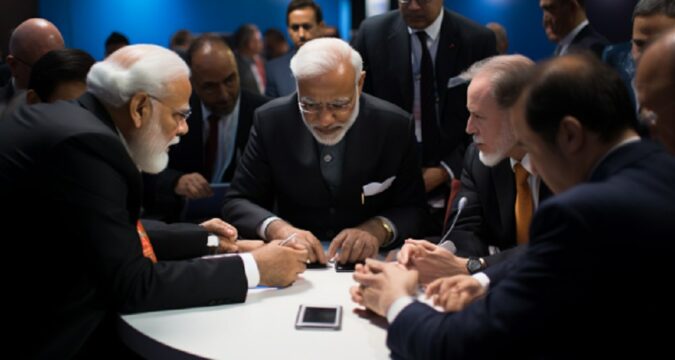
During the annual G20 summit, Indian Prime Minister Narendra Modi emphasized the importance of global cooperation in developing comprehensive cryptocurrency regulations. With India currently at the helm of the G20 summit, the country has taken on the responsibility of championing the establishment of a robust international structure for overseeing digital currencies.
G20 Leader Proposes Global Crypto Regulations
The group comprises 19 member nations, including the European Union (EU). The annual gathering represents the coming together of the world’s most developed and emerging economies.
The G20 plays a critical role in fortifying the structure and management of global economic affairs by encouraging international collaboration on critical economic issues. In an interview with a local media outlet, Modi explained the significance of emerging technologies such as blockchain and cryptocurrency.
He emphasized that these innovations’ impact will be felt worldwide in no time. As a result, the rules, guidelines, and framework governing these technologies should not be limited to a single country or coalition of nations.
Using the aviation industry as an example, the Prime Minister emphasized establishing a unified global framework for regulating emerging technologies such as cryptocurrency. He suggested that, just as the aviation industry operates under standard rules and regulations governing air traffic control and security, the rapidly evolving digital assets warrant such a uniform global approach.
In picturing this global regulatory ecosystem, Modi emphasized the importance of international cooperation, regardless of economic or geopolitical differences. He noted that, like air travel, the implications of cryptocurrency and blockchain go beyond national boundaries.
As a result, a shared commitment to developing guidelines that encourage innovation while discouraging illegal activity is necessary. On what India is doing toward ensuring crypto regulation, the PM noted that the country is using its G20 presidency to build momentum by holding discussions and seminars to deepen the public’s understanding of digital assets.
Championing Global Action
The release of a presidential document embodying India’s perspective on the global crypto framework on August 1 marked a significant milestone for the country. This document demonstrated India’s stance on the issue and its commitment to harmonizing regulations in the crypto space.
Moreover, the note recommendations echoed the established directives of authoritative bodies such as the Financial Stability Board (FSA), the Financial Action Task Force (FATF), and the International Monetary Fund (IMF). However, it also introduced novel insights, mainly targeted to suit the unique dynamics of developing economies.
India has been a vocal supporter of creating a comprehensive global crypto regulatory framework for some time. In contrast, its domestic crypto landscape remains entangled in a web of complexities, uncertainties, and significant tax burdens.
This puzzling situation has raised eyebrows, as India’s international posture on regulation contrasts with the challenges it faces at home. For instance, India’s decision to implement a 30% tax on cryptocurrency gains in 2022 caused an exodus of crypto businesses.




